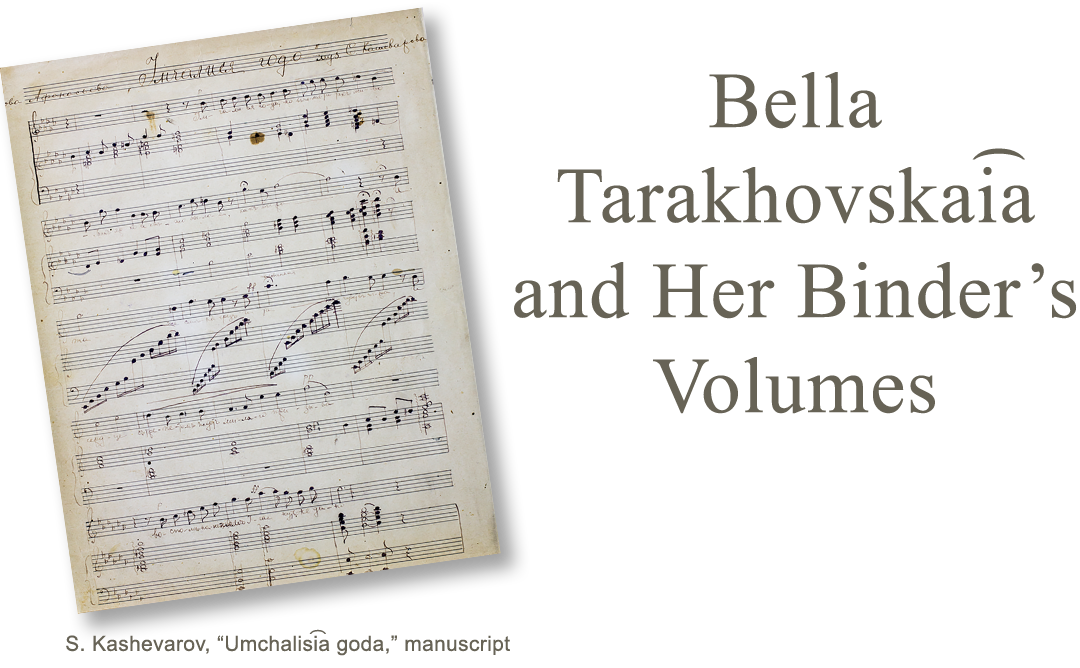
These two binder’s volumes contain music collected by Bella Tarakhovskai͡a (1903-1983), a young Jewish woman from Ukraine. Born in Melitópol’ (then under the control of Imperial Russia), Tarakhovskai͡a was one of many émigrés who made their homes in the city of Harbin, China.
During the early decades of the twentieth century, Harbin occupied a distinct position first within Manchuria and later within the puppet state of Manchukuo. It emerged in 1898 in connection with the construction of the Chinese Eastern Railway (CER) and the CER remained central to its activity. The city evolved, as the historian David Wolff has written, “from an abandoned distillery with a minor river portage into a bustling multiethnic urban center with over 100,000 inhabitants” (Wolff 1999). The CER, a major industrial and political initiative, recruited workers from across the Russian empire. Many of these new residents (like Tarakhovskai͡a herself) were Jews. Officially exempt from the civil restrictions that governed Jewish life in the empire, Harbin appealed to this community—and to many others. The residents thus included not only émigrés from Imperial Russia but also Japanese, Korean, European, and, of course, Chinese citizens. By the first decade of the twentieth century, Harbin was a lively, international city, sometimes called the “Petersburg of the East” or the “Paris of the East.”
Tarakhovskai͡a’s collection documents one encounter with this city and its vibrant yet complex musical life. Her scores represent an expansive network of international music printers, publishers, and sellers, suggesting the remarkable paths of transmission through which Western repertoire was disseminated among émigrés (and non-émigrés) in East Asia. It reveals the kind of education which might be available to an aspiring young musician in the city and the complicated social and cultural relationships that inevitably emerged within such a multiethnic milieu. It also records some of the composers, performers, and works which enjoyed popularity there during the early decades of the twentieth century. Perhaps most importantly, it offers evidence about how one young woman responded to the environment in Harbin and how that environment—with its unique priorities, practices, and contradictions—could be reflected within a collection of music.
Research on this collection was generously funded by a Furman Advantage Summer Research Fellowship, by the Furman University Libraries, and by the Music Library Association’s Carol June Bradley Award.
This collection was created by Patricia Sasser, Music Librarian at Furman University. Special thanks to CiGi Curry (’21) whose early work on this collection helped to establish many critical details about both the repertoire and the context under which these materials were collected and preserved.
